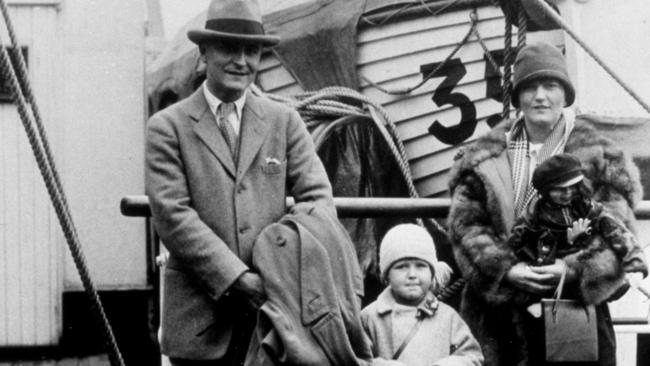F. Scott Fitzgerald’s new short stories a fascinating mixed bag
Seventy-six years after his death, F. Scott Fitzgerald’s writing remains as relevant today as it was then.

A PAIR OF RAGGED CLAWS: Thanks to all the readers who sent in their thoughts on inapposite apostrophes and other grammatical gremlins. You made me laugh. I’ll share them here in a week or two.
I’m back here in the bleachers today, not in my usual spot, because of F. Scott Fitzgerald. Well, any editor unwilling to take a step back for him would be a crack-up. As it happens, I think Fitzgerald’s new collection of short stories, I’d Die for You, is the first apostrophised book title of his career.
It is a new collection, 76 years after Fitzgerald’s death at age 44, as some of the stories have not been published previously and some are unfinished. Most were submitted to magazines. It’s therefore a mixed bag but it’s fascinating to read for the insights into Fitzgerald. Each story comes with a preface by editor Anne Margaret Daniel that puts the fiction in the context of the author’s life. The dark title story, I’d Die for You, is from the time of Fitzgerald’s suicide attempt. “I’m afraid it’s going to be difficult to sell,” agent Harold Ober admitted in a letter to his star writer.
The I.O.U. is the earliest story, written, but not published, when Fitzgerald was 23. It’s a witty piece about publishing and a challenge that remains just as relevant today: the line between nonfiction and fiction. Reading it, my immediate response was, “Gee, he can write, can’t he?” Five years later Fitzgerald published The Great Gatsby, which received mixed reviews and did not sell well. Money was a perennial problem, even though at one point The Saturday Evening Post paid him $US4000 a story, the equivalent of $US55,000 today. But the life he and Zelda led was expensive.
As Daniel notes, Fitzgerald felt he had been pigeon-holed as a writer of the Jazz Age, light and flappy, and people were less interested in the more serious stories he wanted to write in the 1930s, when he was unwell, and so was the American economy. He was proud of some of the stories in this book, and disappointed at their reception. “The more I get for my trash the less I can bring myself to write,” he said in a letter to editor Max Perkins. He wrote on, so he could pay his debts and work on his novels. But he didn’t like it. Nor did he like working in Hollywood as a screenwriter or “script doctor”, as he was on Gone with the Wind. “As soon as I feel I am writing to a cheap specification my pen freezes and my talent vanishes over the hill,” he said in a letter to Zelda. Aas the 1930s went on, Daniel writes, Fitzgerald “refused to submit to the expectations of those surprised to find in him a broad streak of realism, or a progression into the bleakness and broken styles of High Modernism, or just plain something they thought ugly”. He published five novels before his second and final heart attack: This Side of Paradise, The Beautiful and the Damned, The Great Gatsby, Tender is the Night (my favourite) and the unfinished, posthumously released The Last Tycoon. Reading this new book I could only wonder at what might have been.
Book prizes continued. Super-talented Sydney writer Fiona McFarlane has become the second Australian to win the £30,000 ($52,700) Dylan Thomas Prize, for her short fiction collection The High Places. Our previous winner was Nam Le, for The Boat in 2008. Northern Ireland-born Melburnian Adrian McKinty has won an Edgar Award, the US’s crime fiction Oscar, for Rain Dogs, the fifth book in his superb series centred on Sean Duffy, a Catholic detective in a Protestant police force. His response, one I also could imagine hearing from Duffy, is our quote of the week: “Holy shit I won the Edgar!’’
Finally, noting the NSW Premier’s Literary Awards fiction shortlist last week I left out Nick Earls’s novella Vancouver, part three of a five-book series by the Brisbane author. Apologies to him and his publisher Inkerman & Blunt.



